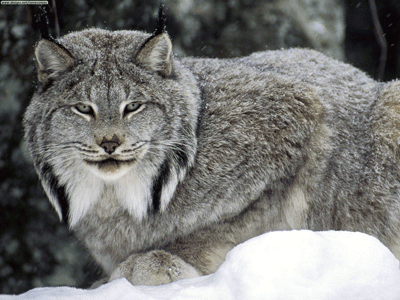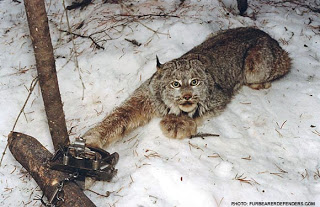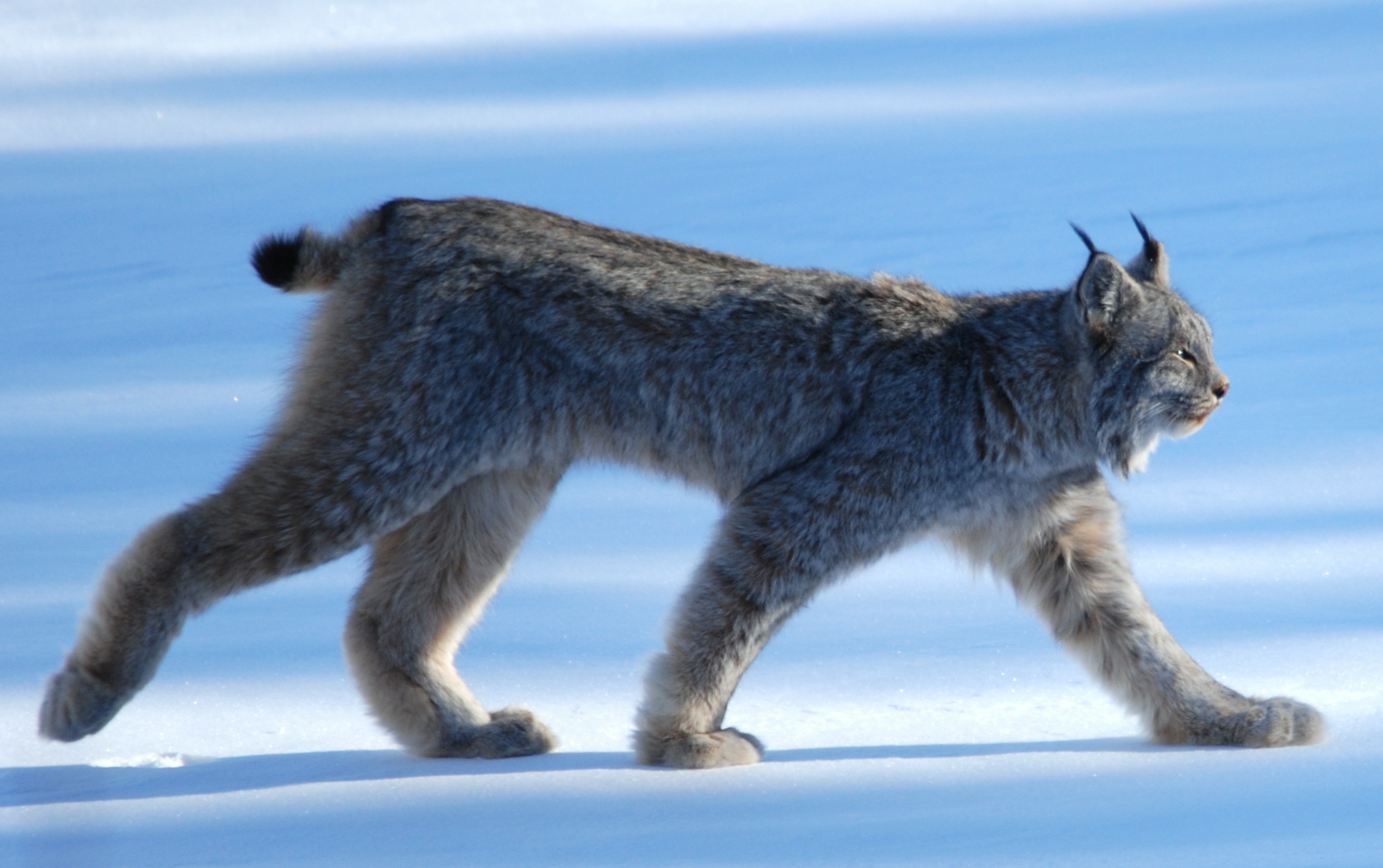Trump Admin Announces It Will Strip Canada Lynx of Endangered Species Protection

(EnviroNews Nature) — Washington D.C. — You’ve probably never seen a Canada lynx (Lynx Canadensis) in the wild. And if the U.S. Fish and Wildlife Service (USFWS) pulls off its plan to remove Endangered Species Act (ESA) protections for the elusive wildcat, conservationists say you might never get the chance.
On January 11, 2018, the USFWS released a scientific review of the Canada lynx in the contiguous U.S., concluding the species “may no longer warrant protection” under the ESA.
Despite admitting the possibility of the creatures being “functionally extirpated” from some of their main population centers during this century, the agency will nevertheless “begin development of a proposed rule to delist the species.”
The tufty-eared, long-legged cousin of the bobcat (Lynx rufus) grows to about three feet long and weighs up to thirty pounds. It prefers dense forest habitat and feeds primarily on the snowshoe hare (Lepus americanus). About 2,000 Canada lynx remain in total spanning Maine, northeastern Minnesota, northwestern Montana, northeastern Idaho, north-central Washington and western Colorado.
In 2000, the USFWS designated the cat as a threatened species in the contiguous U.S., qualifying it for protection under the ESA. Following significant delays by the agency in devising a recovery plan, conservation groups filed a lawsuit.
In 2014, the U.S. District Court for the District of Montana ruled the USFWS had violated the ESA through its delay and mandated the agency to either release a plan by 2018, or determine that such a plan would be unnecessary. The agency chose the latter.

Despite the agency’s decision, its review, Species Status Assessment for the Canada Lynx — Contiguous United States Distinct Population Segment, painted a dismal picture for the future of the species.
In particular, the USFWS noted that lynx require hundreds to thousands of square kilometers of boreal forest habitat with “dense horizontal cover and robust populations of its primary prey, the snowshoe hare.” Yet the document predicted “declining forestland” in the U.S. and “human-caused fragmentation of the already naturally patchy pattern of lynx habitat.”
Factors identified by the USFWS as impacting lynx and snowshoe hare habitat include roads, development, logging, and trapping.

The agency also pegged climate change as one of the creature’s biggest threats, since the current amount and duration of snowfall is already at the “minimum thresholds believed necessary to give lynx a competitive advantage over bobcats and other mesocarnivores.”
Disconcertingly for wildlife lovers, the agency documented a decline of habitat in five out of six of the lynx’s main areas, with populations in each unit “likely to be smaller and their distributions reduced in the future.”
“This is a political decision — pure and simple. This administration is throwing science out the window,” said Matthew Bishop, an attorney with the Western Environmental Law Center (WELC). “The best science tells us that lynx are worse off than they were when originally listed in 2000 — we’re seeing lower numbers, more range contraction, and [we] now understand the significant threats posed by climate change.”

“The Service’s abrupt about face is an obvious attempt to abandon the good work toward recovering this climate-impacted species because saving lynx from extinction is not aligned with the Trump Administration’s climate-denial and emphasis on maximizing resource extraction on our public lands,” said Bethany Cotton, Wildlife Program Director for WildEarth Guardians (Guardians). “The Fish and Wildlife Service needs to stop playing politics and stick to the science clearly showing lynx need our help.”
If the USFWS moves forward with delisting Canada lynx, conservation groups say they plan on suing.
The agency’s lynx decision comes on the heels of a controversial Mexican Wolf Recovery Plan released at the end of November, which conservationists say also turns a blind eye to science when stronger endangered species protections are needed.
RELATED FROM ENVIRONEWS
Federal Judge Orders Stop to Canadian Lynx Trapping in Idaho
(EnviroNews Idaho) – Boise, Idaho – A federal judge has ordered a stop to the haphazard trapping of Canadian Lynx in Idaho. Lynx canadensis, as it is scientifically known, is one of the rarest cats in the United States and has been captured multiple times in Idaho over…
Governments in CO/UT/NM/AZ Deliberately Derailed Mexican Wolf Recovery, Documents Reveal (Investigative Report)
(EnviroNews Colorado) – After decades of deliberation the final revision of the U.S. Fish and Wildlife Service’s (USFWS) Mexican Wolf Recovery Plan (the Plan) was released at the end of November, but former USFWS officials tell EnviroNews it strays far from scientists’ minimum recommendations for recovery of the…
Colorado’s Controversial Black Bear, Mountain Lion Killing Plan, Defanged in Federal Court
(EnviroNews Colorado) Denver, Colorado – Good news for wild critters and those who love them, as a federal court has temporarily blocked a controversial plan to kill mountain lions (Puma concolor) and black bears (Ursus americanus) on public lands in Colorado. The ruling marks the most recent in…
FILM AND ARTICLE CREDITS
- Josh Schlossberg - Journalist, Author


![Leading the Charge for America’s Wild Horses on Capitol Hill: NBA/NFL Celeb. Bonnie-Jill Laflin: ‘[Politics] won’t stop us from fighting’](https://cf-images.us-east-1.prod.boltdns.net/v1/static/1927032138001/f46b2158-cead-47f0-ab44-4b027059411a/4e4afcf2-937d-4a9d-acba-1b82e2efd4c6/160x90/match/image.jpg)


